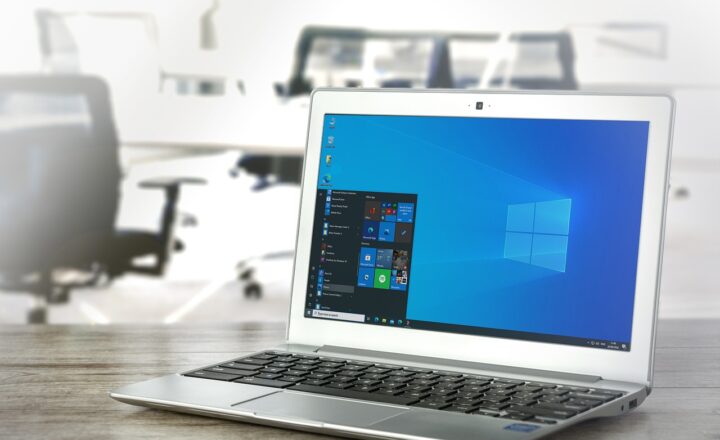Android Customization vs. iOS Simplicity: Which Is Right for You?
November 12, 2024

When it comes to choosing a mobile operating system, two of the most popular contenders are Android and iOS. Each system has its unique strengths and weaknesses, and they cater to different types of users. In this comprehensive exploration, we will delve into the intricacies of Android customization versus iOS simplicity, helping you determine which OS suits your needs best.
1. Introduction to Android and iOS
The smartphone landscape is primarily dominated by two major operating systems: Android, developed by Google, and iOS, developed by Apple. While Android offers users extensive customization options, iOS is known for its streamlined and user-friendly interface. Understanding these foundational differences provides insight into the ongoing debate over which system holds the superior title.
Apple’s iOS is often celebrated for its aesthetic appeal and simplicity. Users can find comfort in a cohesive ecosystem centered around ease of use. On the other hand, Android thrives on personalization, presenting users with countless opportunities to configure their devices to their liking.
2. Android Customization: A World of Possibilities
Android is renowned for its flexibility, allowing users to mold their experience to fit their specific preferences. The following key features highlight the depth of customization available within Android:
- Home Screen Personalization: Users can rearrange icons, add widgets, and choose from various launchers to create a truly unique home screen experience that reflects their personal style.
- Third-Party Apps and Launchers: Users have the liberty to download applications from sources outside the official Google Play Store and install alternate launchers that offer additional functionalities and customization options.
- Deep System Customizations: Advanced users can root their devices, granting them the ability to modify system files for enhanced control over the operating system and performance improvements.
- Theming Options: Android users can easily change the theme of their devices through custom icons, wallpapers, and color schemes, providing an aesthetic experience tailored to their liking.
While customization may attract many users, it also comes with potential downsides. A more personalized experience may lead to performance issues, and not all customizations are supported by developers or manufacturers.
3. iOS Simplicity: An Uncomplicated Experience
In contrast to Android’s customization, iOS prides itself on its ease of use. The system is designed to be intuitive and user-friendly, making it accessible for people of all ages and tech backgrounds. Here are some highlights of iOS simplicity:
- Consistent User Interface: iOS maintains a uniform user interface across all devices, which significantly reduces the learning curve for new users and enhances usability.
- Regular System Updates: iOS devices receive frequent and timely updates, offering the latest features and security enhancements without users needing to worry about compatibility with different Android versions.
- App Store Quality Control: The curated nature of the Apple App Store ensures that users have access to high-quality applications, minimizing the risk of malware or poorly designed apps.
- Ecosystem Integration: iOS seamlessly integrates into the Apple ecosystem, allowing users to synchronize data and across devices, such as Macs, iPads, and Apple Watches with ease.
While iOS may sacrifice customization for simplicity, this focus results in an experience that is reliable and easy to navigate, making it an excellent choice for users who prioritize function over form.
4. Performance and Security: Comparing the Two Systems
When evaluating mobile operating systems, performance and security are crucial metrics.
In terms of performance, both systems have made significant strides with the latest hardware:
- Android Performance: Android devices span a diverse range of manufacturers, often leading to varying performance levels. Higher-end Android phones provide smooth performance, while budget models may struggle with intensive applications. Additionally, the option for extensive custom ROMs can help users improve performance on older devices.
- iOS Performance: iOS is designed specifically for Apple hardware, which often results in optimized performance for applications and multi-tasking. Users frequently report superior performance on iOS, thanks in part to efficient use of resources.
Security is another significant factor in this comparison:
- Android Security: While Android has improved its security protocols, its open nature can expose users to potential vulnerabilities. Users need to be cautious with app installations from outside Play Store and consider installing reputable antivirus software.
- iOS Security: iOS is known for its robust security measures, including close app scrutiny and timely security updates. Apple’s control over its App Store and ecosystem provides a more secure environment for users.
5. Price Range and Device Variety
Price and device options can significantly influence one’s choice between Android and iOS.
Android caters to a wide range of users and budgets:
- Affordable Options: Android devices are available at various price points, from high-end flagship models to budget-friendly smartphones, providing users with countless options to choose from based on their needs and financial circumstances.
- Diverse Hardware Configurations: Android phones come with various features such as screen sizes, battery capacities, and camera specifications, allowing users to find the perfect fit for their preferences.
On the other hand, iOS is limited to Apple devices:
- Higher Entry Cost: The price of iOS devices, primarily iPhones, remains on the higher end of the spectrum, making it less accessible to budget-conscious users. However, Apple does offer older models at slightly reduced prices, making them a decent option for those willing to compromise on features.
6. Conclusion: Making the Right Choice
Ultimately, the choice between Android customization and iOS simplicity hinges on your personal preferences and how you intend to use your device. If you value personalization, customization, and having diverse choices, Android has you covered. However, if you prioritize a simple, cohesive, and reliable experience with seamless integration into the Apple ecosystem, iOS may be the better option.
Assessing your unique needs will help you make a more informed decision as you navigate the evolving landscape of mobile operating systems. Ultimately, it’s not about which system is objectively better; it’s about which one aligns closely with your lifestyle, preferences, and values.
In the end, both Android and iOS offer a range of functionalities to cater to various types of users. Finding the right balance between customization and simplicity is essential for maximizing your smartphone experience.







